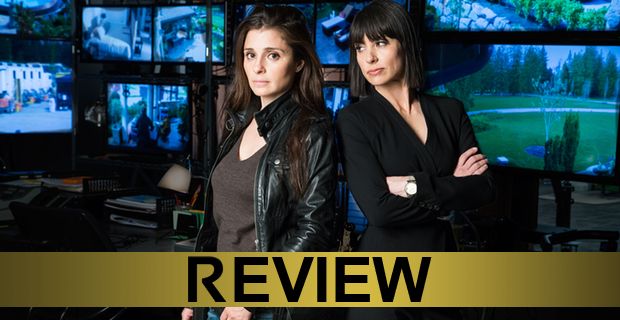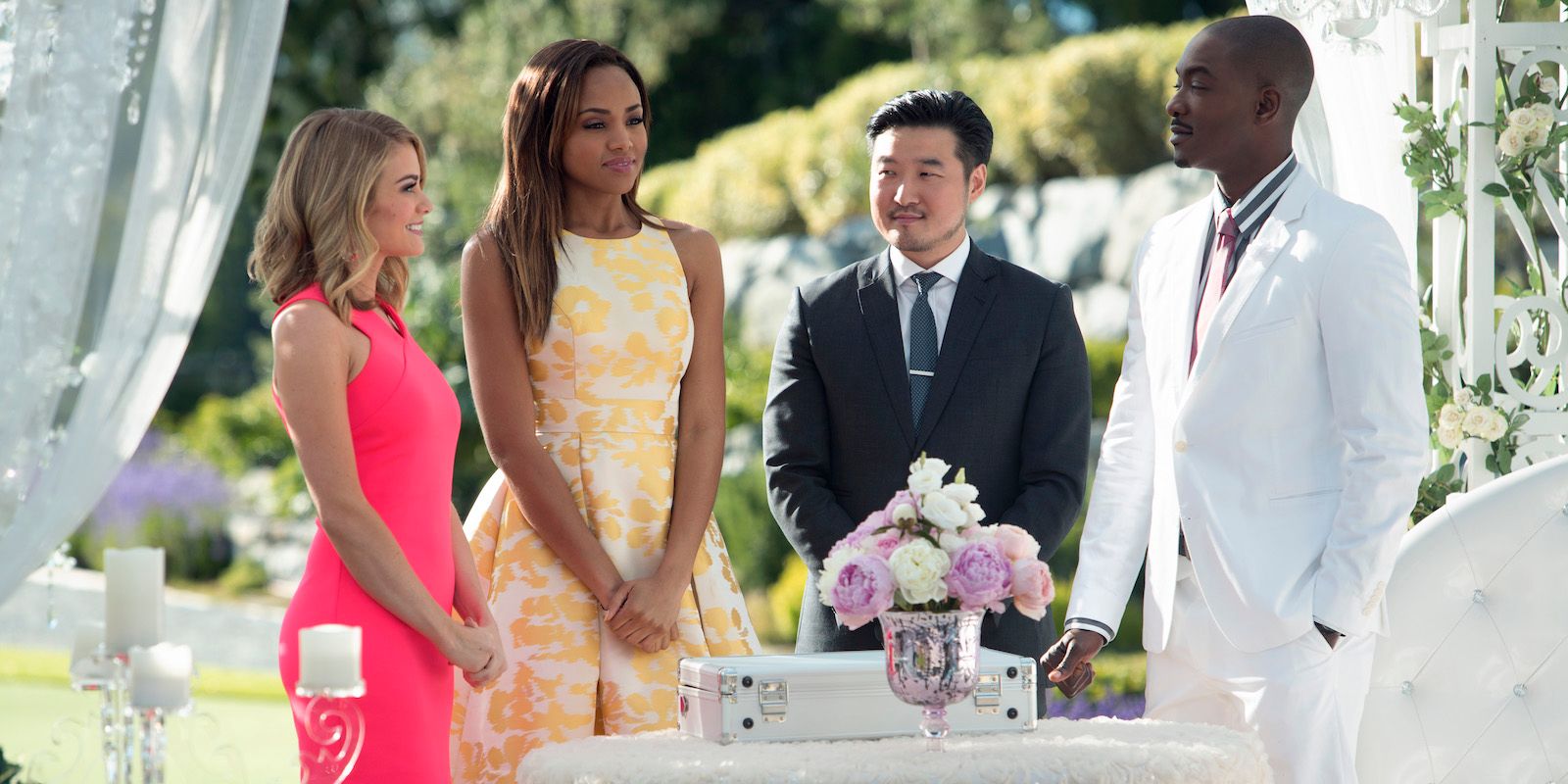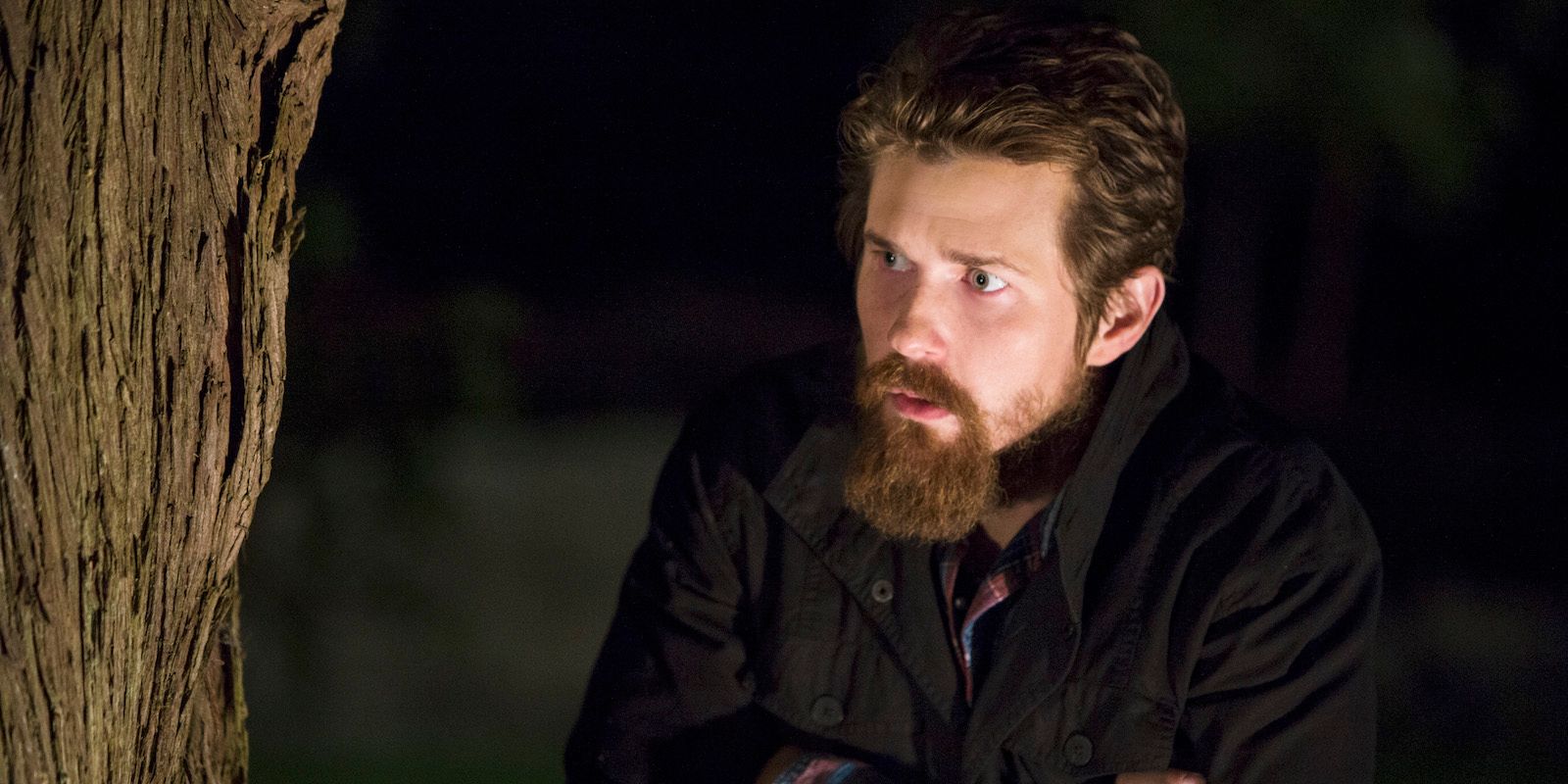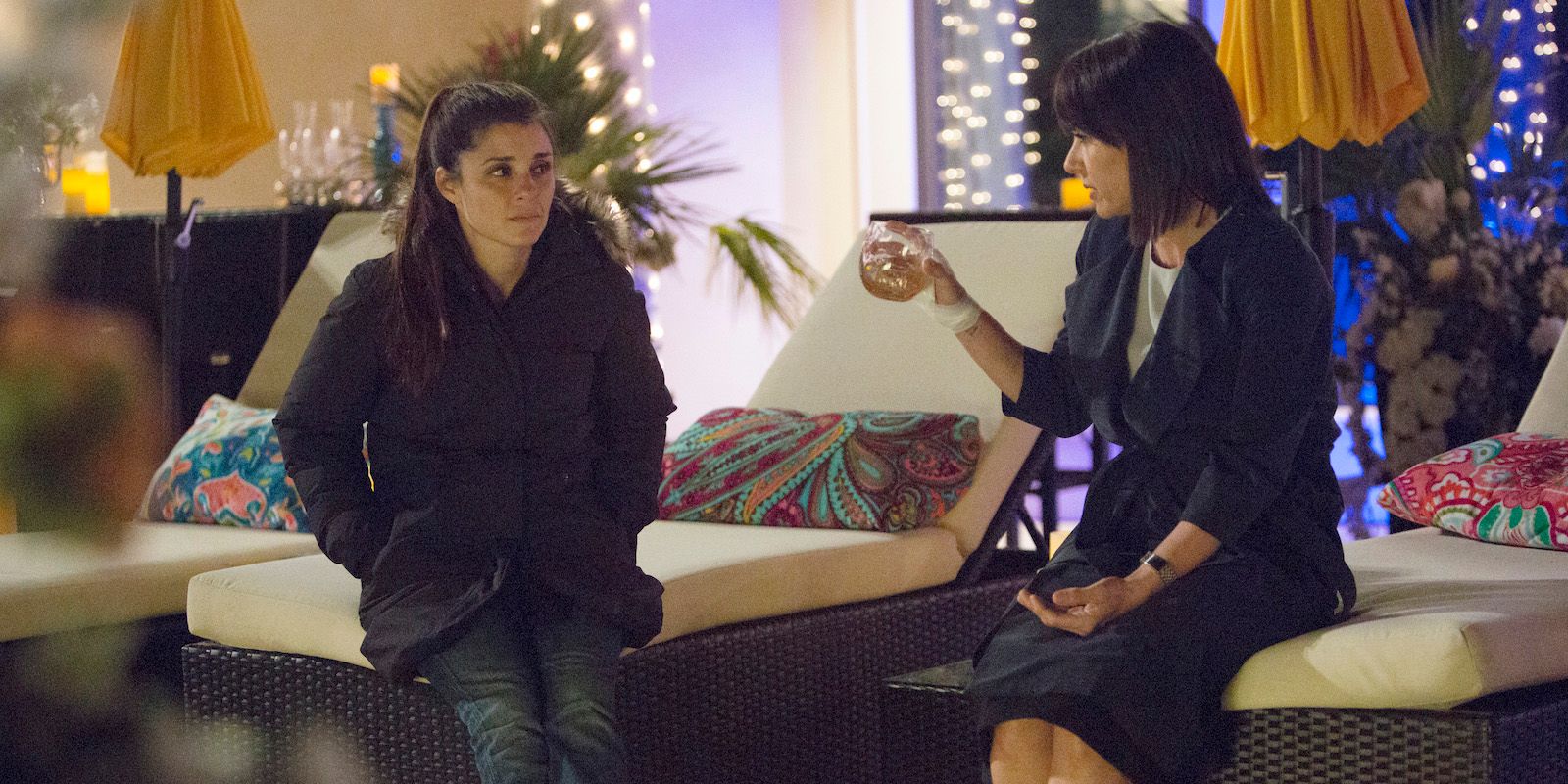In its first season, Lifetime's scripted drama UnReal became a critically acclaimed hit of the 2015 summer season. With two strong female leads in Shiri Appleby's Rachel Goldberg and Constance Zimmer's Quinn King, UnReal was lauded for portraying some of television's best women anti-heroes. The series follows the two producers as they make a season of Everlasting, a reality TV competition series modeled after ABC's The Bachelor - on which co-creator Sarah Gertrude Shapiro served for many years. As a result, UnReal provided fans a behind the scenes, albeit fictionalized, look at the making of one of the most popular reality series on TV.
When season 2 kicked off in the premiere episode, 'War', Quinn had been made executive producer after ousting her former partner Chet (Craig Bierko) and Rachel was showrunner, taking on Quinn's old role. The pair were excited to make history with the first Black suitor, a football star in the middle of a PR nightmare named Darius Beck (B.J. Britt). But, though Quinn and Rachel seemed to be at their strongest and most powerful, the start of a new season meant the return of Chet, which threatened the entire future of Everlasting.
The season 2 finale, 'Friendly Fire', brought to an end a sophomore year of the series that was overstuffed and badly paced. Additionally, and perhaps most egregiously, UnReal season 2 suffered from the same practice that it had previously criticized reality TV of doing: making a spectacle of real issues in order to drive ratings. In 'Friendly Fire', both the messy seasons of Everlasting and UnReal are wrapped up with very little conflict and season-long story arcs of UnReal taking a back seat to Quinn producing the live finale of Everlasting. The effect is a largely underwhelming and unearned ending that completely jumps the shark in the final moments.
Throughout the second season of UnReal, Quinn continually pushes the producers of Everlasting to create a year of television that will rival the "suicide-level ratings" of the previous year. But, as the producers rush to manipulate all the contestants, the suitor, and each other, UnReal is just as guilty of attempting to use every trick in the TV book to maintain or surpass its ratings - or its critical acclaim - in its second year. Among the storylines used in season 2 of UnReal are: Rachel's abuse at the hands of her former partner Jeremy (Josh Kelly), Quinn learning she cannot have children and her subsequent rejection of her boyfriend John (Ioan Gruffudd), the revelation that Rachel was raped by one of her mother's patients as a child and has since been manipulated and emotionally abused by her mother, and the show's take on the Black Lives Matter movement with the police shooting of Darius' cousin Romeo (Gentry White).
Each of these storylines would have been enough to sustain an entire 10-episode season of UnReal since the show is also tasked with developing story threads surrounding Everlasting - between feuds among the contestants as well as conflict among the producers, Chet, and the network, UnReal had plenty going on in season 2 simply in its Everlasting-focused plots. However, the result of adding in all the additional story beats is that UnReal season 2 comes off looking just as ratings-hungry as the series it satirizes.
Certainly, the satire is there in UnReal season 2 as the storyline becomes increasingly more exaggerated along with that of the Everlasting season, but the series fails to accomplish its goal of rising above television using spectacle for ratings when it flounders with character or story development that earns the payoffs of each of these storylines. As a result, UnReal's take on Black Lives Matter is used to further the character arcs of its white characters - completely missing the point of the social movement beyond one line from the producer Jay (Jeffrey Bowyer-Chapman) who accuses Rachel of trying to portray a story that isn't hers to tell.
Then, the plot concerning Romeo's shooting is completely swept under the rug in favor of focusing on Rachel's declining mental health, which leads to two other overarching story beats in which Rachel comes clean about her rape and the destruction of Mary (Ashley Scott), the contestant who committed suicide in the previous season due to negligence of the crew. The last few episodes of UnReal season 2 focuses on short-lived Everlasting showrunner Coleman (Michael Rady) and contestant/undercover reporter Yael (Monica Barbaro) threatening to break the news story of what goes on behind the scenes of UnReal, which would likely land Rachel, Quinn, and many others in jail.
However, like all the other story threads of UnReal season 2, both Romeo's shooting and Coleman/Yael's threat to Everlasting are quickly wrapped up. Romeo's thread comes to a close in 'Friendly Fire' with his sudden return (and in seemingly perfect health) as well as a brief interaction between him and Rachel in which he tells her, "You got me shot. We don't talk again, ever." Once Jeremy learns of Rachel's rape and abuse, he sympathizes with her and reminds her how devoted he is to her.
Perhaps the most compelling conclusions are those for Quinn and Rachel; though Rachel has been abandoned by Coleman and her mother, told she was too damaged to be loved, Quinn offers her own unwavering support to Rachel. Meanwhile, Quinn is bent on ending Everlasting with a bang that leaves Darius and the two final contestants in some form of misery - an obvious lashing out following the destruction of her own relationship with John. However, when Jay and Rachel see to it that Everlasting has a happy romantic end, with Darius driving off with previously eliminated contestant Ruby (Denée Benton), Quinn is left alone with her own misery.
Still, neither Rachel nor Quinn's character arc resolutions are given much time to breath as the season finale quickly skips to the final ratings bonanza element: the revelation that Jeremy killed Coleman and Yael in an effort to protect Rachel and Everlasting from going to prison for their involvement in Mary's suicide. The revelation firmly cements UnReal's status alongside - if not surpassing - The Bachelor and other reality TV series of the like that take real, complex issues and boil them down to ludicrous popcorn entertainment.
All in all, UnReal suffered from more than a sophomore slump in its second season; it seemed to completely forget what made the first season so well liked by critics and fans - the show's clever satirization of the trappings and hypocritical manipulations of reality television, as well as its portrayal of female anti-heroes that the audience may not necessarily agree with but will still root for. In season 2, UnReal focused more on the same elements season 1 satirized: a desire for ratings. UnReal sets out to accomplish this feat by tackling sensitive subjects without enough care to develop them properly or conclude them in ways that feel earned.
It will be difficult for UnReal to come back from its second season in the third season that has already been announced by Lifetime, especially since the series has likely lost a lot of ground with viewers over the course of season 2. Additionally, if UnReal attempts to again go bigger, badder, and more crazy in order to increase ratings, it will be near impossible to top a season that included as many big story beats as this year - and even if UnReal should achieve such a feat, it likely wouldn't make for enjoyable television. So, it remains to be seen if UnReal can make up for its failings in season 2 with a third season, and whether fans of the series are willing to give it another chance.
UnReal has been renewed for season 3, which will likely air in 2017.
Photos: James Dittiger, Bettina Strauss/Lifetime




